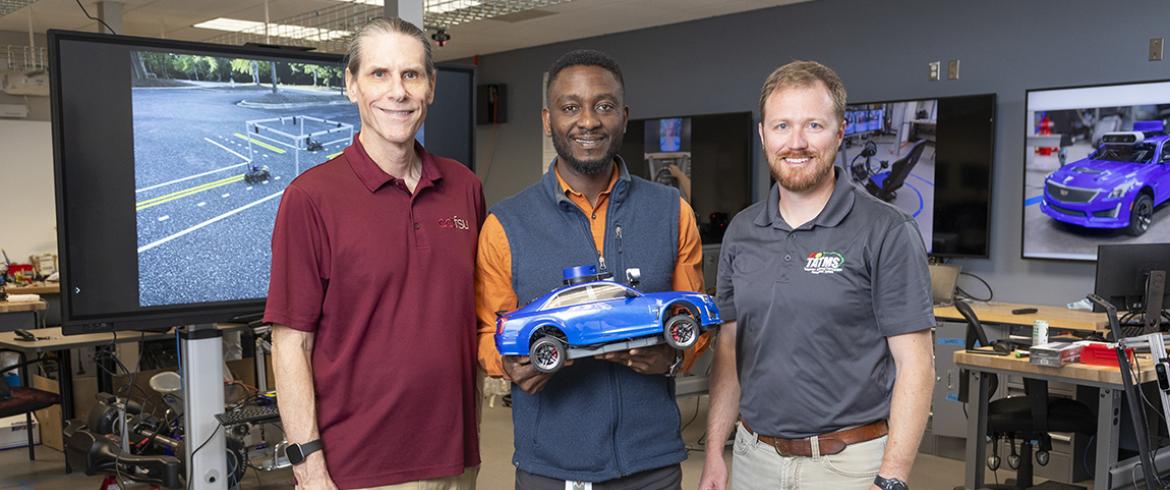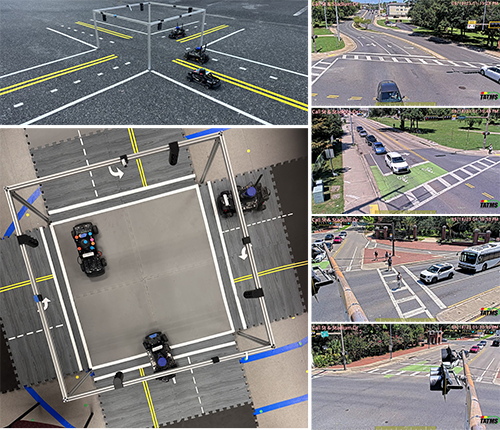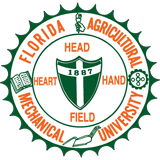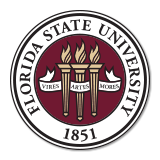
Moses Anubi and his team recently won the U.S DOT Intersection Safety Challenge Stage 1A Award. Left to right: Jonathan Adams, Ph.D.; Olugbenga Moses Anubi, Ph.D., and Joshua Hollingsworth. Not pictured: Ren Moses, Ph.D. (Scott Holstein/FAMU-FSU Engineering)
A team of engineering faculty from the FAMU-FSU College of Engineering was awarded the Intersection Safety Challenge Stage 1A Award from the U.S. Department of Transportation. The researchers walked away with a $100,000 grant to support new and emerging transportation safety technology and the chance to vie for a $1 million grant for the Stage 1B award.

The overall intent of the Challenge is to scale the technology for traffic intersections nationwide.
Olugbenga Anubi, an electrical and computer engineering assistant professor, manages the team with Ren Moses, a civil and environmental engineering professor. Joshua Hollingsworth, of the City of Tallahassee’s Regional Transportation Center (RTMC), is the third colleague with the group. Their winning project, PREDISS, represents the Predictive Intersection Safety System they are developing.
PREDISS is a concept that makes intersections safer. Using a holistic approach, the group can detect and track vehicles and pedestrians in the crosswalk from low-cost sensor data. The software can predict trajectories and uses algorithms to prevent collisions in real-time.
With existing vehicle-to-everything (V2X) technology, the system takes advantage of sensors, cameras, and wireless technology already in use and shares information about a car’s surroundings. PREDISS actively intervenes by providing collision warning signals and, potentially, modifying traffic control signals, preventing an incident.
Anubi is leading the development of the core technology used in the detection and prediction modules, Moses is leveraging his extensive knowledge and expertise in connected vehicle technology to develop warning and collision mitigation strategies, and Hollingsworth has domain expertise and is adapting PREDISS for the City of Tallahassee.
“Our primary focus in the City of Tallahassee is to provide safe and efficient operations for all users of the traffic signal system,” Hollingsworth said. “One of the biggest challenges is improving the safety of vulnerable road users such as bicyclists and pedestrians. As video and LIDAR has become more robust and accessible, there is an opportunity to leverage these emerging technologies to better address the needs of vulnerable road users.”
Both Stage 1A and 1B Challenges complement federal efforts to improve intersection safety by focusing on the use of technology. The Challenge draws on the expertise of researchers and practitioners from universities, state and local agencies, private sector developers and other organizations. The next phase 1B of the competition for the team is to develop, test and optimize the modules used in the PREDISS system.
“We hope to validate all aspects of the technology using FDOT’s data for stage 1B. Beyond that we plan to continue developing PREDISS and explore pathways to mature and scale beyond the city,” Anubi said.
The team plans to create a laboratory to study how to use control systems technology to improve safety. The Challenge also helps create interest among students who will potentially continue to solve this problem in their careers.
“This award is a response to the growing safety concern of the USDOT’s continued effort to implement its national roadway safety strategy,” Anubi said. “We are grateful that to be selected for the Challenge and for the hard work of our team, including the students with the Resilient and Autonomous Systems Lab who have assisted with building a prototype of our system.”
RELATED ARTICLES
Engineering Professor Will Improve Electric Grid Cybersecurity with $2.9M Department of Energy Award
FSU Center for Advanced Power Systems to partner with City of Tallahassee on Power Grid Research
Center for Advanced Power Systems building tools for the future of energy

